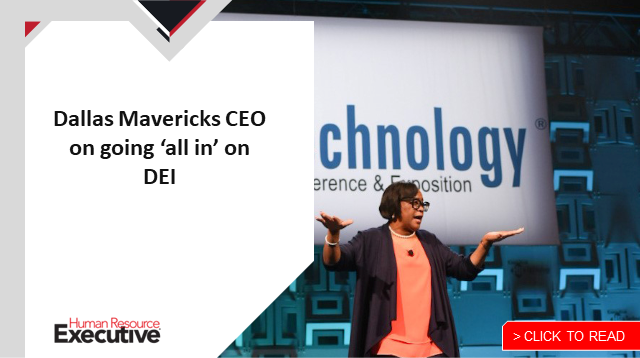Timothy Hourigan, The Home Depot’s executive vice president for human resources, was one of three new fellows installed into the National Academy of Human Resources this month during the academy’s annual dinner in New York City.
He, along with NextEra Energy CHRO Deborah Caplan and Microsoft CHRO Kathleen Hogan, recently answered questions from HRE on HR and its future. To read responses from Caplan and Hogan, click here.
HRE: How has your own view of the HR function changed since the pandemic started?
Hourigan: The changeable nature of the pandemic created a significant test for all leaders. While the challenges took many forms, the majority had significant impacts on people in some form or fashion. I liken this situation to other pivotal business trials in recent history.

For example, the “Y2K” concerns in the late 1990s significantly elevated the information technology profession. As the resident experts in their field, they were required to step up and drive significant change, enabling businesses to avert pending disaster.
A second example occurred during the financial crisis that began in 2007. The financial meltdown required resetting how the function played its role in transparent financial reporting and risk mitigation. Finance professionals were called to step up and take leadership roles in charting the course forward. The result required a significant rethinking regarding the financial aspects of the business.
In 2020, the pandemic called on the HR function to rise to the occasion and address the myriad people-related challenges in a very uncertain environment. It called for decisions being made in the moment with limited data and required a nimbleness to course correct as new insights emerged. And due to its length and human toll, the pandemic required a resilience seldom needed in the past. I submit that, through the efforts of HR professionals across the globe, the profession distinguished itself in the most trying of times.
HRE: What are the skills that will make HR leaders most successful in today’s quickly changing, uncertain world of work?
Hourigan: The skills needed for success in the quickly changing environment today are foundationally the same as existed in the past. I believe the keys to being a successful HR professional are the following:
- Demonstrating a thorough understanding of the business. The ability to speak the language of your business partner is critical to gaining credibility and influencing the strategic direction of the enterprise.
- Displaying subject matter expertise in HR with a particular emphasis on emerging concepts within the HR practice. This competency is critical to provide insightful counsel to the board of directors and the CEO, as well as the broader organization.
- Exhibiting a clear focus on the associate and advocating for their evolving needs. Keen observation of trends and linking them to offerings for associates are integral to attracting and retaining the best talent.
- Courageously speaking up, especially when a particular point impacts the current and, importantly, the future workforce.
With the magnified importance of HR leadership, these four categories take on new meaning. To contribute at the highest level, HR leaders will need to consciously build expertise in these areas. In addition to the above, the uncertain environment further requires comfort in taking decisions with incomplete data as the circumstances dictate agile decision-making to ensure flexibility. Lastly, resilience is requisite as your resolve is tested daily.
HRE: What area of HR holds the most promise to be positively impacted by the use of emerging technologies in the next few years?
 Hourigan: The ability to leverage emerging technologies presents many potential benefits. Among these are the ability to better inform selection decisions, improve delivery of learning, refine the key competencies that differentiate performance and enhance a leader’s ability to connect with associates at critical times in their employment journey. While the use of technology in all these areas will lead to more positive outcomes, I think there are major benefits in talent acquisition. Whether it is selection for entry-level roles or determining the next senior leader for a key business unit, picking the right candidate has significant value add and, conversely, selecting the wrong candidate drives increment costs and subpar business results. Additionally, the right use of technology can help reduce bias, enhancing the diversity of the workforce.
Hourigan: The ability to leverage emerging technologies presents many potential benefits. Among these are the ability to better inform selection decisions, improve delivery of learning, refine the key competencies that differentiate performance and enhance a leader’s ability to connect with associates at critical times in their employment journey. While the use of technology in all these areas will lead to more positive outcomes, I think there are major benefits in talent acquisition. Whether it is selection for entry-level roles or determining the next senior leader for a key business unit, picking the right candidate has significant value add and, conversely, selecting the wrong candidate drives increment costs and subpar business results. Additionally, the right use of technology can help reduce bias, enhancing the diversity of the workforce.
HRE: How is Home Depot navigating the communication and connection challenges inherent to a deskless workforce?
Hourigan: Our geographic distribution has required us to be effective communicators to deskless workers since our founding. Driving this connection is more important now than it has ever been. For reference, we operate in roughly 2,500 locations throughout North America and employ approximately 500,000 associates. Over 95% of these associates work in stores, supply chain centers or in other remote locations. Historically, we used our in-house live broadcast and video streaming capabilities to showcase leaders and send key messages to our distributed workforce. This one-way, mass communication effort, while effective, lacked the personal touch required to build a special relationship and maintain our strong cultural connections.
During the pandemic, we expanded efforts to build a deeper linkage between our leaders and our dispersed workforce. We implemented a live series branded as “Caring Conversations” to provide opportunities for leaders to open two-way dialogue on various business challenges, explain our response to the pandemic and discuss other contemporary topics. These two-way conversations elevated our collective understanding and generated a sense of belonging.
In addition, we accelerated our adoption of video technologies to supplement traditional conference calls and address the lack of frequent in-person visits. While not perfect, this enabled an enhanced personal connection that was negatively impacted by pandemic travel restrictions. Town hall meetings, staff meetings and all associate department meetings are now routinely completed via video.
Lastly, we are augmenting and, in some cases, replacing traditional forms of communication. We are leveraging communication for mobile technology to connect with associates where and when they are ready.
HRE: How are you viewing internal talent mobility, particularly in light of the “Great Resignation”?
Hourigan: Internal talent development has been a hallmark of The Home Depot since our founding in 1978. Today, over 90% of our store leadership started in front-line, hourly positions. We have leveraged this success to develop several additional efforts to focus on internal talent development. I would like to highlight four programs we offer associates to expand their skills and grow their careers within the company.
- We have an initiative called “Orange Method.” This effort targets hourly associates who have indicated a desire to move into the technology arena. After passing a basic skills assessment, candidates attend a 12-16-week “boot camp” where they are taught technology skills in systems and software engineering. Candidates are then placed in the appropriate engineering role upon successful program completion.
- In our college internship program, we allocate 50% of the positions each year to internal candidates. To be eligible, existing associates must be furthering their formal education while working at The Home Depot. Those selected have the same internship experience as candidates recruited from various college campuses.
- Our recently launched Career Mobility Program is open to any associate who is looking to expand their career. Modeled on the college internship program, it consists of a three-month formal internship in various staff support roles.
- Four years ago, we created a Talent Career Center. Staffed with professional career coaches, this team provides individual and group coaching tailored to reskilling current associates who have been impacted by role elimination due to changing business needs.
These four initiatives are coupled with an individual approach to career development embedded in our annual performance management process. All in, these present a suite of opportunities to ensure our associates can grow and fulfill their career aspirations.
The post 5 questions with The Home Depot’s CHRO appeared first on HR Executive.